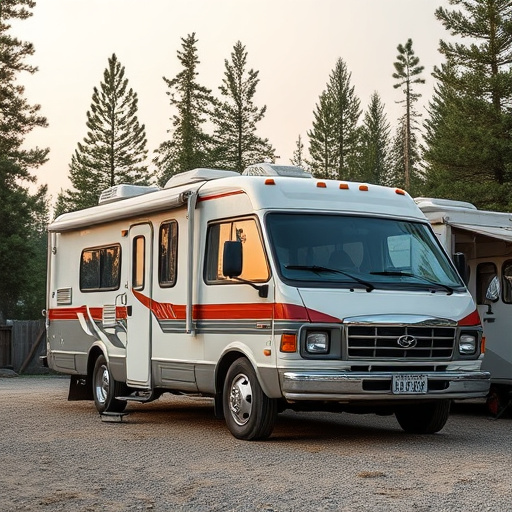RV batteries are crucial for powering amenities in recreational vehicles, with 12-volt lead-acid models being common. Proper maintenance, including terminal cleaning and voltage monitoring, extends their lifespan. Upgrading involves assessing needs based on RV model, age, climate, and power requirements. Lead-acid, AGM, and lithium-ion batteries offer varying advantages; lithium-ion is pricier but provides longer life and faster charging. Installation should be done carefully, followed by regular inspections and corrosion prevention. Energy efficiency practices, like LED lighting and smart charging, enhance RV battery performance and longevity.
Upgrade your RV’s battery system for enhanced performance and longevity with our expert guide. We’ll walk you through understanding RV battery systems, assessing your current setup, and choosing the right battery type. Learn key factors for upgrade success, master step-by-step installation and wiring, and discover maintenance tips to maximize energy efficiency. Optimize your RV’s power management today!
- Understanding RV Battery Systems: The Basics
- Assess Your Current Battery Setup
- Key Factors to Consider for Upgrading RV Batteries
- Choosing the Right Battery Type for Your RV
- Installation and Wiring: A Step-by-Step Guide
- Maintenance Tips for Longevity and Performance
- Maximizing Energy Efficiency in Your RV
Understanding RV Battery Systems: The Basics
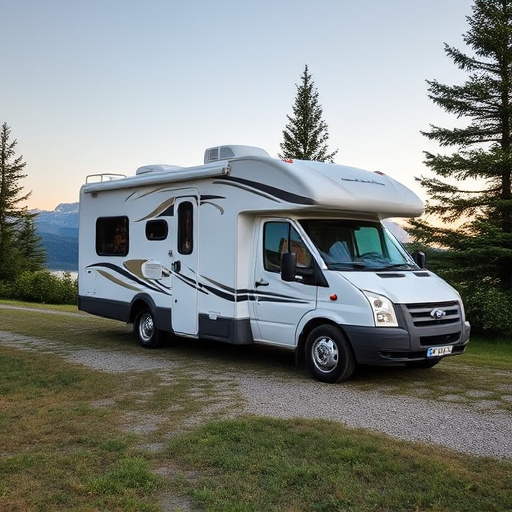
RV battery systems are a crucial component of any recreational vehicle, providing power for lighting, water heating, and other essential amenities. Understanding how these systems work is the first step in optimizing their performance and longevity. The majority of RVs come equipped with one or more 12-volt lead-acid batteries, which convert chemical energy into electrical energy through a process called electrochemic reaction.
These batteries are designed to be deep-cycle, meaning they’re meant for frequent charging and discharging cycles as opposed to high-amp draws. Over time, factors like exposure to extreme temperatures, undercharging or overcharging, and corrosion can degrade their performance. Regular maintenance, such as checking battery levels and cleaning corrosion from the terminals, can significantly extend their lifespan.
Assess Your Current Battery Setup
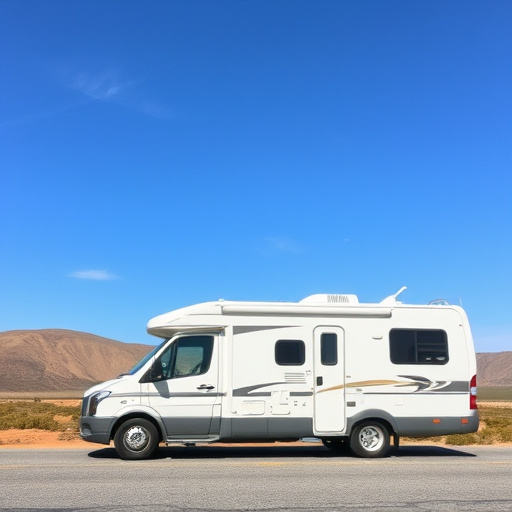
Before upgrading your RV battery system, it’s crucial to assess your current setup. Start by evaluating the age and condition of your existing batteries. RV batteries typically last between 4-6 years, so older batteries may require replacement. Check for any signs of corrosion or damage, as these can impact performance and safety. Additionally, consider the size, voltage, and capacity of your current batteries to ensure they align with your RV’s electrical demands.
Next, examine how your batteries are wired and connected. Ensure that the wiring is in good condition, free from cracks or wear, and properly insulated. Verify that all connections are secure and clean, as loose or dirty connections can cause voltage issues and reduce battery life. This step is essential for maintaining a stable power supply and optimizing the performance of your upgraded RV battery system.
Key Factors to Consider for Upgrading RV Batteries
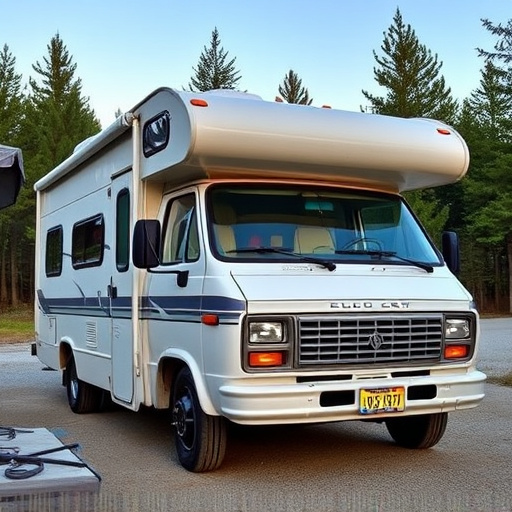
When upgrading RV batteries, several key factors come into play. Firstly, understand your specific RV’s battery requirements. Different models and ages may need varying voltage, capacity, and chemical compositions. Secondly, consider the climate you primarily use your RV in. Extreme temperatures can significantly impact battery performance; deep cycle batteries designed for harsh conditions are advisable. Lastly, choose between lead-acid or lithium-ion batteries based on cost, weight, lifespan, and maintenance needs. Lithium-ion batteries offer longer lifespans and faster charging times but come at a higher upfront cost compared to traditional lead-acid options.
Choosing the Right Battery Type for Your RV

Choosing the right battery type for your RV is a crucial step in ensuring optimal performance and longevity. RV batteries come in various types, each with unique features catering to different needs. The most common types are lead-acid batteries, lithium-ion batteries, and AGM (Absorbent Glass Mat) batteries. Lead-acid batteries are affordable and reliable but heavier, while AGM batteries offer better weight distribution and corrosion resistance. Lithium-ion batteries, though more expensive, provide superior performance, lightweight design, and longer lifespan.
When selecting an RV battery, consider factors like your power requirements, weight constraints, budget, and desired backup time. For larger RVs with high energy demands, lithium-ion batteries might be the best choice due to their higher ampere-hour (Ah) capacity. Smaller or lighter RVs could opt for AGM batteries, which offer a good balance between performance and cost. Always ensure proper installation and maintenance to maximize battery life and avoid any safety hazards associated with RV batteries.
Installation and Wiring: A Step-by-Step Guide
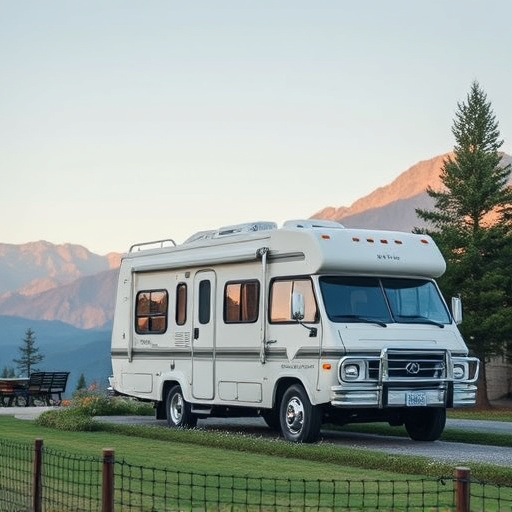
Upgrading your RV battery system can seem daunting, but with a clear guide, it becomes a manageable task. Installation and wiring are crucial steps in ensuring your new batteries function safely and effectively. Here’s a straightforward step-by-step process to help you navigate this part of the upgrade.
First, locate your existing battery compartment, usually found under the RV’s hood or in a dedicated space beneath the vehicle. Next, carefully remove the old batteries, taking note of their position and any associated wiring. Once cleared, clean the compartment thoroughly, ensuring no residual corrosion or debris remains. Install the new batteries, aligning them precisely as per manufacturer guidelines. After installing, connect the positive (+) and negative (-) terminals using appropriate wires. Double-check each connection for secure fits before moving on to the next step. Ensure proper grounding by attaching a ground wire from the battery to a designated ground point in your RV’s chassis.
Maintenance Tips for Longevity and Performance
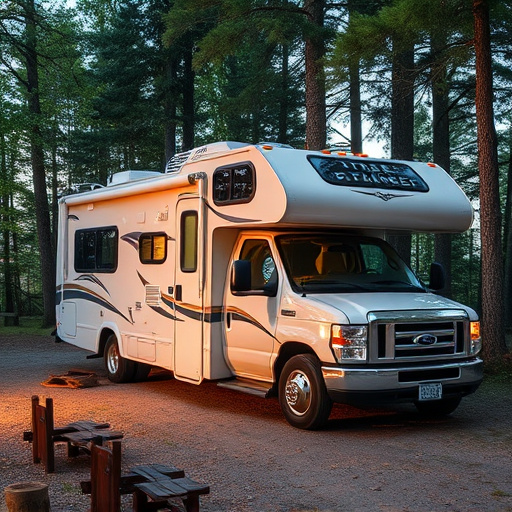
Regular maintenance is key to keeping your RV battery in top condition, ensuring longevity and optimal performance. Start by inspecting it frequently for any signs of damage or corrosion. Clean the battery terminals with a mixture of baking soda and water to remove buildup, which can hinder electricity flow. Keep the area around the battery clean and dry to prevent moisture from causing short circuits.
Additionally, monitor the battery’s voltage regularly. A fully charged 12-volt RV battery should read around 12.6 volts. If it consistently stays below 12.4 volts, it might be time for a replacement. Remember, proper maintenance not only extends the life of your RV battery but also guarantees reliable power during your travels.
Maximizing Energy Efficiency in Your RV
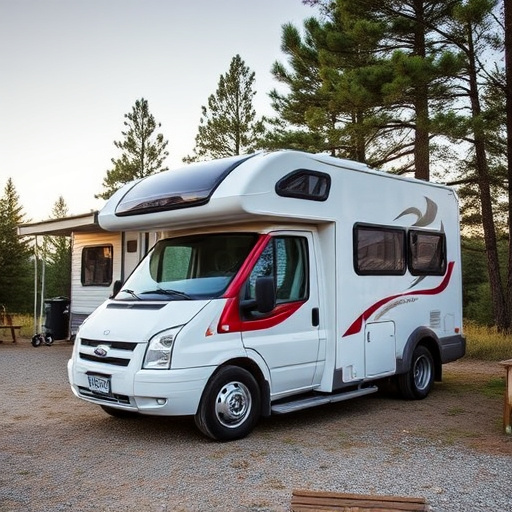
Maximizing energy efficiency in your RV is a key aspect of extending battery life and ensuring you have power throughout your travels. Start by assessing your energy consumption. Identify high-wattage appliances and consider using lower-power alternatives whenever possible. For instance, opt for LED lighting instead of incandescent bulbs, as they draw significantly less current.
Additionally, implement smart charging practices. Use a solar panel or generator to top up your RV’s battery while camping, especially if you’re in remote areas with limited access to electrical hookups. This not only reduces reliance on the main battery but also allows it to recharge at a slower, more sustainable rate, prolonging its lifespan. Regularly monitor your RV’s battery usage and maintain a balanced charging routine to keep it operating at peak efficiency.
Upgrading your RV’s battery system is a smart move to enhance performance, longevity, and overall energy efficiency. By understanding your current setup, assessing your needs, and choosing the right battery type, you can ensure a seamless installation process. Following simple maintenance practices will keep your batteries in top shape, allowing you to explore the open road worry-free. Incorporating these three essential tips into your RV upgrades will undoubtedly elevate your camping experience.
